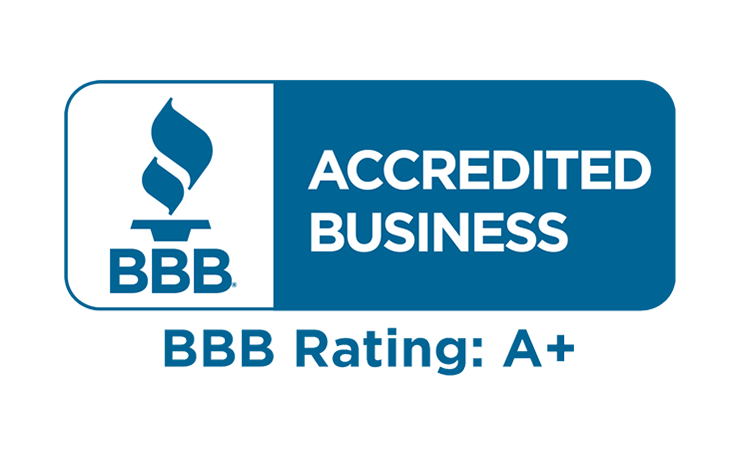Buyers
Whether you are a first time home buyer looking for your dream home or a seasoned real estate investor looking for that next great deal, Magna Capital Group, Inc. can satisfy all of your real estate needs. Our company uses cutting edge technology to supply our agents with the best resources to assist their clients in finding the perfect home. They are always a step ahead of the real estate market trends so that you may find the best deal possible. We know that every situation is different. So, our agents take the time to treat you like an individual and not just another sale. We evaluate each of our client’s needs on a one on one basis. This gives our agents the ability to provide the highest level of satisfaction possible. Our agents guide you through the entire real estate buying process, educating you through every step to make sure your home buying experience is stress free.
Identifying your needs and goals, finding quality professional assistance, and understanding the current real estate market, are some of the topics homebuyers should address. This section provides helpful information regarding the home buying process as well as useful tips on how to get started.
The Buying Process:
Needs & Goals
Once you have decided to move, clearly identify your needs and desires before beginning to search actively for a new home. What characteristics must a house include in order to meet your basic needs? What qualities will truly make it your home?
Characteristics To Consider In Determining Your Needs
• Price range
• Minimum number of bedrooms and bathrooms
• Minimum amount of living area
• Special requirements, such as wheelchair accessibility
Characteristics To Consider In Determining Your Desired Home
• Styles you like (and those you do not)
• Lifestyle (lot size, townhouse/condominium, active, urban)
• Condition (new construction, move-in condition, a ‘fixer-upper’)
• Location (main street, close to town center, cul-de-sac, waterfront)
• Public services (water, sewer)
• Features most important to you (fireplaces, wood floors)
Professional Assistance
Hiring a real estate professional can help ensure that the home buying process is a successful, enjoyable experience.
What To Expect From A Real Estate Firm
• Reputation for honesty, integrity and fairness
• Professional standards and support for agents
• Broad, consistent market coverage
• Complete range of homeownership services
• Online technologies to simplify your home search
• Commitment to customer satisfaction
What To Expect From A Real Estate Professional
• Legwork to help complete the transaction
• Expert guidance through a complex process
• Vigilance for market dynamics
• Insight about homes and communities
Related Home Buying Services
• Mortgage Assistance: It is recommended that you get pre-approved early in the process
• Insurance Coverage: Home protection is recommended even if you are not financing your home
Access Experience
Once you find the right professional, be sure to explain your goals completely and ask to be informed as soon as relevant homes become available. Also, understand what additional resources the firm offers to assist your search. Tour homes with your agent and visit Open Houses; this will give you a sense for the market, and provide helpful information to the agent.
Home Values
Key Factors In Home Values
• Recent sales of comparable houses (in terms of size, features, location and style)
• The condition of the interior, exterior, major systems, and grounds
• Local market conditions, including the inventory of comparable homes
• The existence of other competing buyers
These factors only provide part of the answer. Your own motivations also weigh heavily on any determination of value: how well does the house meet your goals? A homeownership professional specializing in the local market is best qualified to give you an accurate assessment of a home’s current market value, and to help balance market realities with your dreams. Considering all of these factors will allow you to make a competitive offer.
Making an Offer
The Formal Offer
Offers must be in writing, signed and dated by all buyers, and include the following:
• Offer Price: how much you are agreeing to pay
• Expiration Date: when the offer expires, if not accepted
• Closing Date: when you can take ownership, including elimination of all contingencies
• Deposit: the amount you will place into an escrow account to secure your offer (typically 5% – 10% of the offer price)
• Contingencies (if any): such as mortgage financing and inspections
This is only an overview; how an actual Offer to Purchase is submitted and progresses through a transaction varies from state-to-state, and often from town-to-town. It is wise to become familiar with the offer and purchase contract practices in you market area, with legal assistance if appropriate.
Negotiating An Offer
The seller has the following options when considering offers:
• Accept the offer as proposed
• Reject the offer
If the seller rejects the offer, they may modify one or more terms and submit a counter offer. However, they are under no obligation to do so. Once all terms are agreed to by both parties the home inspection process begins, after which the parties proceed to execute the purchase contract (typically within 5-10 days), and begin the closing steps.
Home Inspections
It is common for buyers to make an offer contingent upon one or more home inspections. These inspections are performed for, and paid by, the buyer. The seller must consent to the inspection, but is not required to correct, or provide compensation for, any problems identified. If the seller agrees to an inspection as part of accepting the offer, the seller must allow the inspection within the time specified in the offer. If the inspection findings are acceptable to the buyer, the closing process can begin.
Property inspections should be conducted by professional inspectors – someone trained in the field that has no outside interests in the property. The buyer should be present when inspections are performed, so that the inspector can describe the process and findings personally.
The Inspector Should:
• Look for any serious structural, mechanical, and/or other major defect in the property
• Examine all systems, including heat, air conditioning, electrical, and plumbing
• Examine the general construction quality and condition of the house
• Spend time checking the exterior of the house, including the roof, foundation, and chimneys
• Check the basement, including wiring, plumbing, heating, and air conditioning
• Check the attic for proper insulation and venting
• Check all interior rooms for proper venting, insulation, and electrical outlets
• Run all appliances and plumbing fixtures to verify working condition
• Check all bathrooms to see if moisture has affected the areas around the tub or shower
• Inspect for other items you may have requested, such as insects, termites, and other pests
Lead Paint And Lead Hazard Inspections
Beginning in 1978, federal law mandated the removal of lead as an additive in residential paints, and prohibited the use of lead paint in the construction of homes built after that date. As a result, properties built after 1978 should be free from lead-based paint, although a risk assessment and/or inspection is still recommended. Properties built before 1978 may present exposure to lead from lead-based paint that may place young children at risk of poisoning. The federal law is particularly concerned with protecting children less than six years of age and pregnant women. Some states’ laws are even more stringent than the federal law, and directed at lead hazards other than those associated only with lead-based paint. Buyers should familiarize themselves with relevant laws in their states. A risk assessment or inspection for possible lead-based hazards is recommended prior to the purchase of any home.
The Closing
What to Expect In The Days Before Closing
Closings usually occur thirty to ninety days after a signed Purchase & Sale Agreement. In the period leading up to closing, the buyers and their homeownership service providers are normally focused on removing contingencies, which would include conducting inspections and processing the mortgage application(s).
The home buyers should also begin planning to move their personal goods.
What to Expect At Closing
All parties will be present or represented at the closing for final review and signing of papers. Closings are administered by a Closing Attorney or Settlement Agent. If the seller cannot attend, there are alternative arrangements, which typically involve signing papers in advance, and/or granting Power of Attorney to their representative. You will be asked to sign the mortgage and any other papers that the lender, and/or other interested parties, may require. If you are financing the purchase through a lender, the lender’s attorney will often be present, in order to review documentation and protect the lender’s interests. At conclusion, the lender’s attorney will record the new deed and mortgage, and discharge all previous obligations of the seller.




